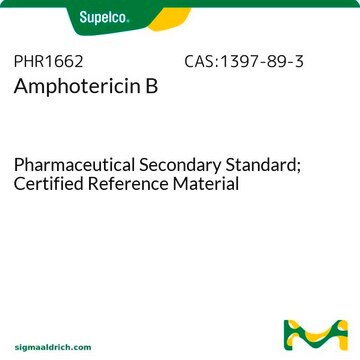F0175000
Flucytosine
European Pharmacopoeia (EP) Reference Standard
Synonym(s):
5-Fluorocytosine, 4-amino-5-fluoro-2(1H)-pyrimidinone, Flucytosine
About This Item
Recommended Products
grade
pharmaceutical primary standard
API family
flucytosine
manufacturer/tradename
EDQM
mp
298-300 °C (dec.) (lit.)
application(s)
pharmaceutical (small molecule)
format
neat
storage temp.
2-8°C
SMILES string
NC1=NC(=O)NC=C1F
InChI
1S/C4H4FN3O/c5-2-1-7-4(9)8-3(2)6/h1H,(H3,6,7,8,9)
InChI key
XRECTZIEBJDKEO-UHFFFAOYSA-N
Looking for similar products? Visit Product Comparison Guide
General description
Application
Biochem/physiol Actions
Packaging
Other Notes
related product
Choose from one of the most recent versions:
Certificates of Analysis (COA)
Sorry, we don't have COAs for this product available online at this time.
If you need assistance, please contact Customer Support.
Already Own This Product?
Find documentation for the products that you have recently purchased in the Document Library.
Customers Also Viewed
Our team of scientists has experience in all areas of research including Life Science, Material Science, Chemical Synthesis, Chromatography, Analytical and many others.
Contact Technical Service








